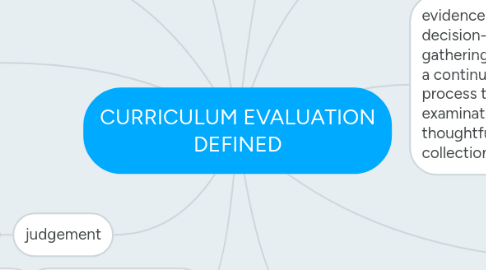CURRICULUM EVALUATION DEFINED
저자: Martin Thomas

1. collecting information
2. judgement
2.1. of quality programme significance value of programme worth objective for utility alternative approaches thoughtful appraisal merit character
3. sources Billings and Halstead (2012: Pendleton & Myles (1991:185-187); Reilly and Garberson (1992:2); Tyler (1949:105); Loriz and Foster in Lee (2005: 112); Kelly (2004:137); Iwasiw, Goldenberg and Andrusyszyn (2005: 222); and Asgari (2010) in De Villiers ( 2009 123-125).
4. Characteristics: is that is not once off, but continuous; is part and parcel of overall curriculum development
5. involves data analysis (processing) and interpretation
6. The results are used for judgments of worth, implementation and effectiveness
7. evidence-based corrective measures quality and effectiveness informed decisions change redial change approval accreditation educational activity
8. evidence-based decision-making gathering and analysing data on all dimensions a continuous process process to find out if learning produced the results examination of all components of curriculum leading to conclusion thoughtful appraisal collection and provision of evidence
9. improvement
10. A systematic assessment of all components to improve planning, implementation and effectivenes
11. entails collection of data and information


